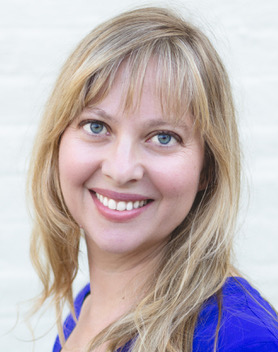
The internet is teeming with articles titled, “Why Every Woman Needs a Strong Female Mentor,” “The Importance of Female Mentors,” and “Why Female Mentors Are Crucial to Success.” Mentors, these articles note, empower women to become leaders in their field, achieve work-life balance, create sustainable work communities. All things I hoped to achieve, plus tenure.
My first year as an assistant professor, I was assigned a mentor to help me navigate the culture of my new workplace. We went for a mentoring lunch at the student cafeteria where he provided background on the politically tenuous landscape of the department, the demands of the students and the requirements for tenure. I took in all of this information as I closely watched the clock to make sure I could exit gracefully and in time to pick up my then two-year old from daycare.
We did not meet again until my first-year review.
I floundered for the next few years. Juggling publication deadlines, lectures, grading, parent-teacher nights, faculty meetings and the occasional yoga class. I desperately needed someone to strategize with me, occasionally read a paper and give me feedback, connect me with an editor, or to just listen and understand. Someone who had gone through the arduous tenure process, as a woman and as a mother, and had come out not only breathing but sane and victorious.
In 2017, I applied to the Paula Hyman Mentorship program through the AJS. The program pairs emerging women scholars with established academics in the field to help them turn their dissertations into publishable manuscripts, gain knowledge about career advancement and achieve work-life balance. I was paired with Helen Kim, a sociologist whose work on Jewish identities outside of the Jewish mainstream closely connects to mine.
During the AJS conference, Helen and I met for coffee in the lobby of the hotel. We covered a lot of ground in our first meeting – our work, our students, our kids. Not only did we connect on many levels, but for the first time since entering the tenure-track, I felt I had finally found that elusive mentor I had read so extensively about in the many career advice articles that flood my e-mail inbox.
Over the next few days, Helen and I met a few more times, both on our own and as part of the larger group of mentor/mentees pairs. We discussed strategies for writing and publishing, carving out time for friendships, choir or pilates, child-rearing and Jewish academic life. We also spoke in-depth about what a mentorship relationship should look like, what we can expect from one another and how to implement a positive and useful connection.
Helen and I laid out our expectations as mentor and mentee and mapped out details such as the frequency of our meetings, the best way to connect and communicate and the issues that were most pertinent. We decided to speak once every six weeks. I asked Helen for help with my book revision, my tenure file, and sometimes lend lend a sympathetic ear for the occasional kvetch.
Helen helped me with all of this, and so much more. By sharing my experiences, asking for help and knowing I had someone whom I could rely on, I was able to navigate the competing demands of my professional and personal life, and I did it feeling supported and connected.
As a result of this experience, I asked Helen to help me start an academic mentorship program at the college where I teach. Helen had run the college mentoring program at Whitman College and was able to guide me on the details of coordinating the program. At out launch meeting, I introduced the program by sharing my experience as a mentee in the Paula Hyman Mentorship program and expressing how having a good mentor, as the internet articles communicated, was “crucial to my success”.